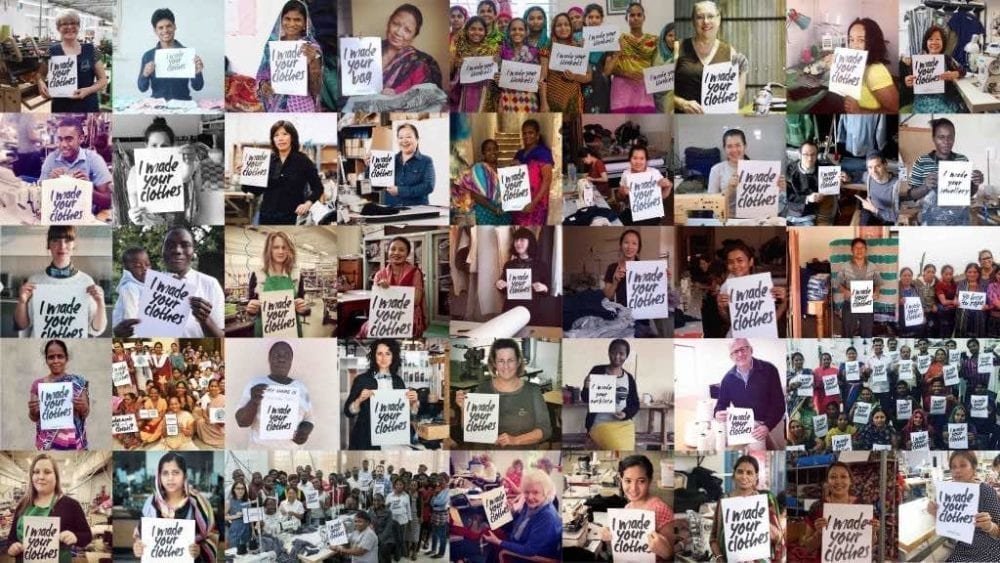‘Have you ever wondered who makes your clothes? How much they’re paid and what their lives are like? Our clothes have gone on a long journey before they hit store shelves, passing through the hands of cotton farmers, spinners, weavers, dyers, and sewers. Eighty percent of them are women between the ages of 18 and 24. Many of the people who make our clothes live in poverty. This needs to change.’
ORSOLA DE CASTRO
Fashion Revolution co-founder
Garment Worker Diaries
Fashion Revolution Week 2017 will feature events and activities worldwide to encourage people to think differently about the clothes they buy and wear and inspire them to make a positive difference.
Garment Worker Diaries, a project created in partnership with Microfinance Opportunities, will document the daily lives of 540 garment workers in Cambodia, Bangladesh and India, to explore what they are paid, how they spend their money and what their daily life is really like.
Fashion Revolution will use the research findings to advocate for changes in consumer and corporate behaviour and policy changes that improve the living and working conditions of garment workers everywhere.
Open Studios
This year Fashion Revolution will launch Open Studios, asking established international designers to open their studios to the public and share their inspiration.
The goal is to celebrate the invisible process behind designers’ finished collections, as well as revealing the intimacy of a studio and the reality of the team of people who make our clothes.
The #haulternative initiative
Following the success of the #haulternative launch with Youtube vloggers Noodlerella, CutiePieMarzia, Shameless Maya and Graveyard Girl, celebrity fashion influencers and consumers around the world will be invited to create their own #haulternative video online, sharing ideas for refreshing your wardrobe without buying new clothes.
This year, supported by Avery Dennison, three hackfilms were added to the haulternative initiative, encouraging viewers to embroider and repair their clothes. Avery Dennison has donated Fashion Revolution-branded patches made from 95% recycled yarn, which will be distributed to influencers worldwide.
As the UK looks to renegotiate more than 50 international trade deals, it is more crucial and timely than ever to campaign for a fashion revolution in order to raise awareness of the potential impact on producers and makers in developing countries.
Click here for more on why we need a fashion revolution.
 Play Video about This Rock Might Just Save The World
Play Video about This Rock Might Just Save The World Play Video about Play 2 hours of rock
Play Video about Play 2 hours of rock Play Video about Play 2 hours of brook
Play Video about Play 2 hours of brook Play Video about Play 2 hours of sheep
Play Video about Play 2 hours of sheep











































